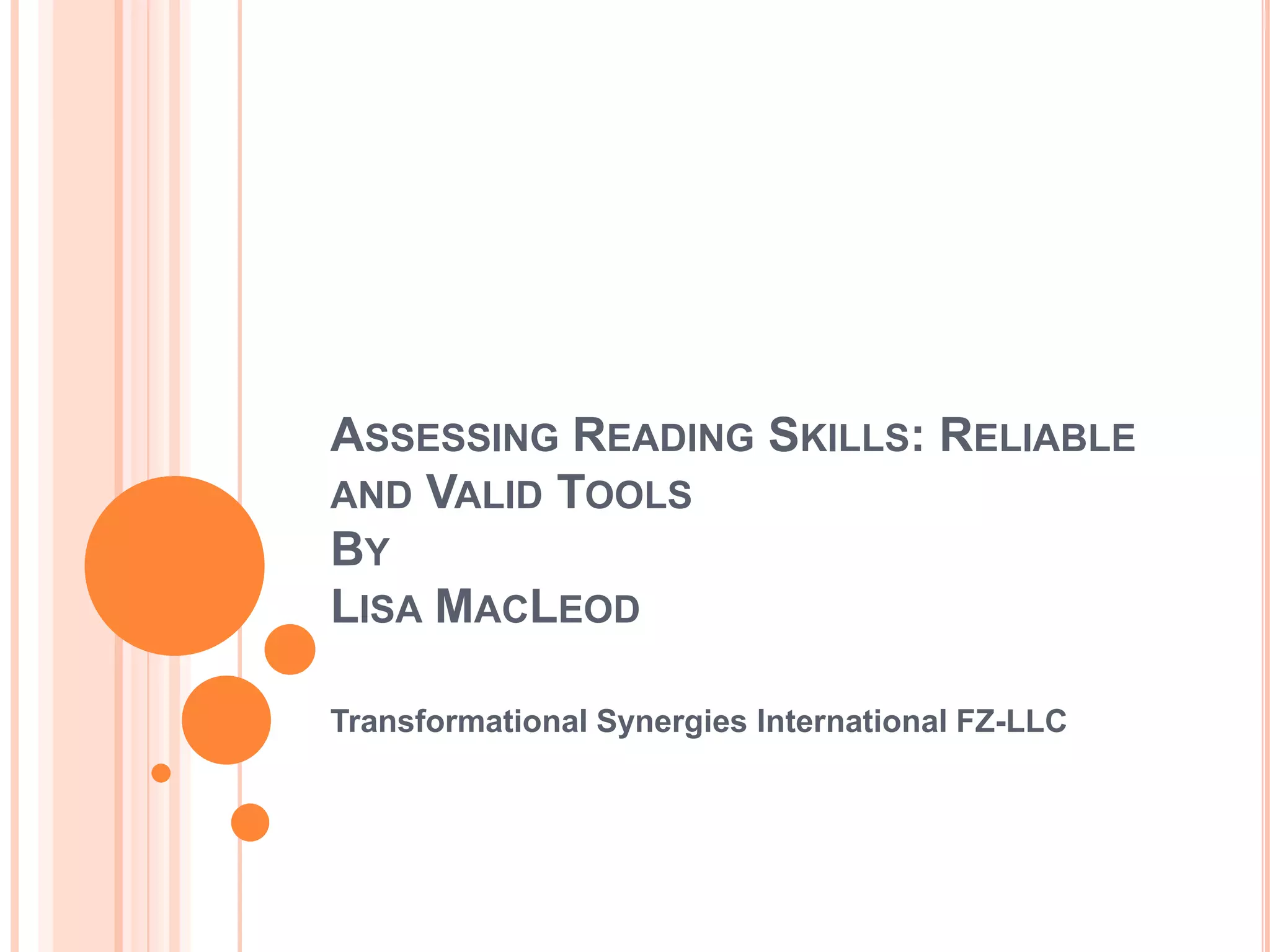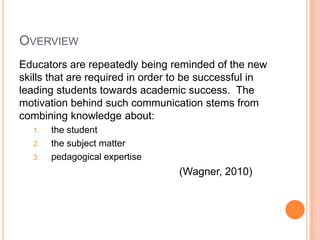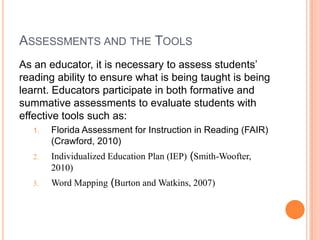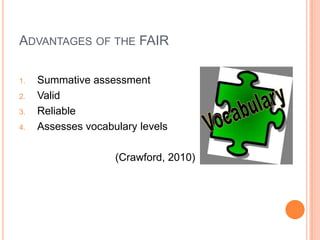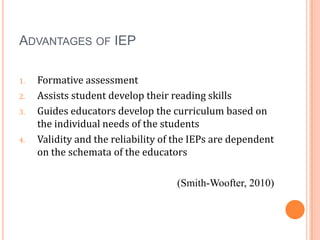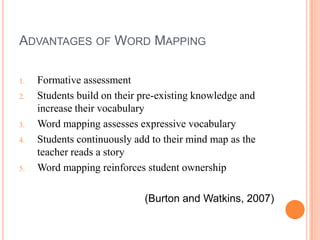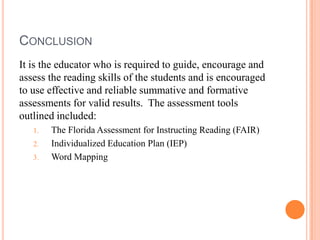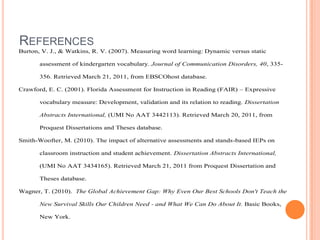The document discusses the importance of assessing students' reading skills using reliable and valid tools, specifically highlighting formative and summative assessments such as the Florida Assessment for Instruction in Reading (FAIR), Individualized Education Plans (IEPs), and word mapping. Each assessment method has its advantages, providing educators with ways to develop curriculum and meet individual student needs effectively. The conclusion emphasizes the educator's role in guiding and assessing reading skills to support academic success.
